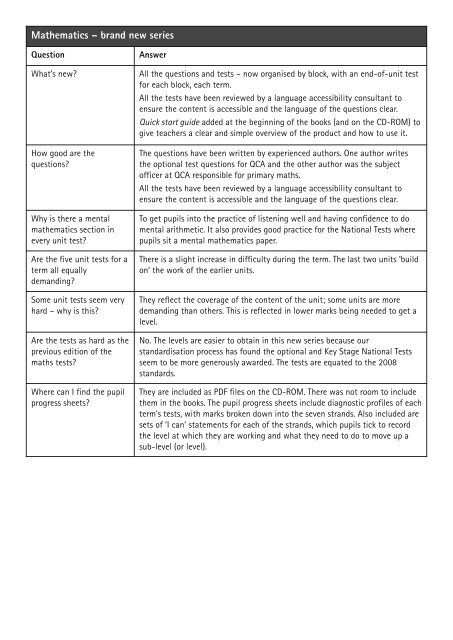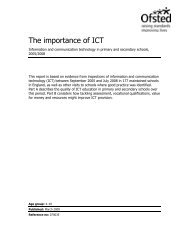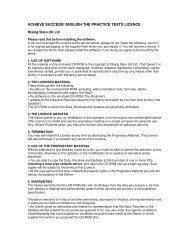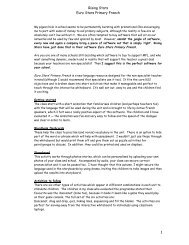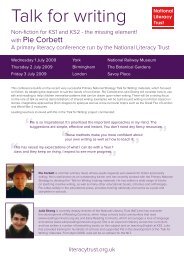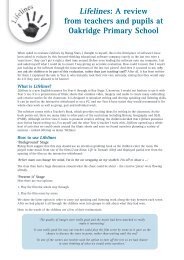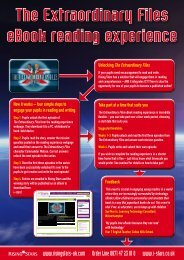Frequently Asked Questions and Answers
Frequently Asked Questions and Answers
Frequently Asked Questions and Answers
You also want an ePaper? Increase the reach of your titles
YUMPU automatically turns print PDFs into web optimized ePapers that Google loves.
Mathematics – br<strong>and</strong> new series<br />
Question Answer<br />
What’s new? All the questions <strong>and</strong> tests – now organised by block, with an end-of-unit test<br />
for each block, each term.<br />
All the tests have been reviewed by a language accessibility consultant to<br />
ensure the content is accessible <strong>and</strong> the language of the questions clear.<br />
Quick start guide added at the beginning of the books (<strong>and</strong> on the CD-ROM) to<br />
give teachers a clear <strong>and</strong> simple overview of the product <strong>and</strong> how to use it.<br />
How good are the<br />
questions?<br />
Why is there a mental<br />
mathematics section in<br />
every unit test?<br />
Are the five unit tests for a<br />
term all equally<br />
dem<strong>and</strong>ing?<br />
Some unit tests seem very<br />
hard – why is this?<br />
Are the tests as hard as the<br />
previous edition of the<br />
maths tests?<br />
Where can I find the pupil<br />
progress sheets?<br />
The questions have been written by experienced authors. One author writes<br />
the optional test questions for QCA <strong>and</strong> the other author was the subject<br />
officer at QCA responsible for primary maths.<br />
All the tests have been reviewed by a language accessibility consultant to<br />
ensure the content is accessible <strong>and</strong> the language of the questions clear.<br />
To get pupils into the practice of listening well <strong>and</strong> having confidence to do<br />
mental arithmetic. It also provides good practice for the National Tests where<br />
pupils sit a mental mathematics paper.<br />
There is a slight increase in difficulty during the term. The last two units ‘build<br />
on’ the work of the earlier units.<br />
They reflect the coverage of the content of the unit; some units are more<br />
dem<strong>and</strong>ing than others. This is reflected in lower marks being needed to get a<br />
level.<br />
No. The levels are easier to obtain in this new series because our<br />
st<strong>and</strong>ardisation process has found the optional <strong>and</strong> Key Stage National Tests<br />
seem to be more generously awarded. The tests are equated to the 2008<br />
st<strong>and</strong>ards.<br />
They are included as PDF files on the CD-ROM. There was not room to include<br />
them in the books. The pupil progress sheets include diagnostic profiles of each<br />
term’s tests, with marks broken down into the seven str<strong>and</strong>s. Also included are<br />
sets of ‘I can’ statements for each of the str<strong>and</strong>s, which pupils tick to record<br />
the level at which they are working <strong>and</strong> what they need to do to move up a<br />
sub-level (or level).


